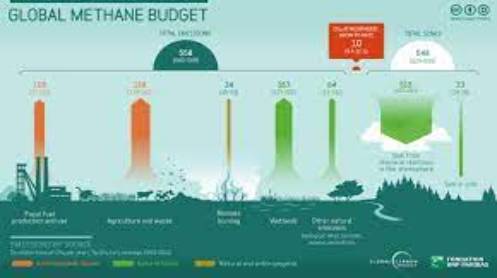PARIS: While climate discussions often focus on reducing carbon dioxide (CO2), the attention will now shift to methane emissions, a potent greenhouse gas, at a global forum in Geneva this week.
Methane, though short-lived, plays a crucial role in heating the planet and is a key target for countries aiming to quickly reduce emissions and mitigate climate change. The leakage of methane from oil and gas projects is a major concern, with emissions from the fossil fuel industry rising for three consecutive years and reaching near record highs in 2023, according to the International Energy Agency (IEA).
Understanding Methane:
Atmospheric methane (CH4) is a significant component of natural gas and is the second-largest contributor to global warming, accounting for about 30% of warming since pre-industrial times, as per UN climate experts. Despite its relatively short lifespan of around 10 years in the atmosphere, methane has a much higher warming impact than CO2, with a warming effect 28 times greater over a 100-year period and 80 times greater over 20 years.
Challenges and Sources of Methane:
Estimating methane emissions remains challenging, although satellite monitoring has improved detection. Human activities contribute about 60% of methane emissions, with agriculture being the largest contributor, particularly through livestock emissions and rice cultivation. The energy sector, including coal, oil, and gas, is the second-largest source of human-caused methane emissions, primarily due to leaks from infrastructure and maintenance procedures.
Addressing Methane Emissions:
Rapid reductions in methane emissions from the fossil fuel sector could prevent up to 0.1 degrees Celsius of warming by mid-century, according to the IEA. This reduction would have a significant impact, equivalent to removing all cars and trucks worldwide from the roads immediately. IEA Executive Director Fatih Birol emphasizes that tackling methane emissions is one of the most effective and affordable options for combating global warming.







